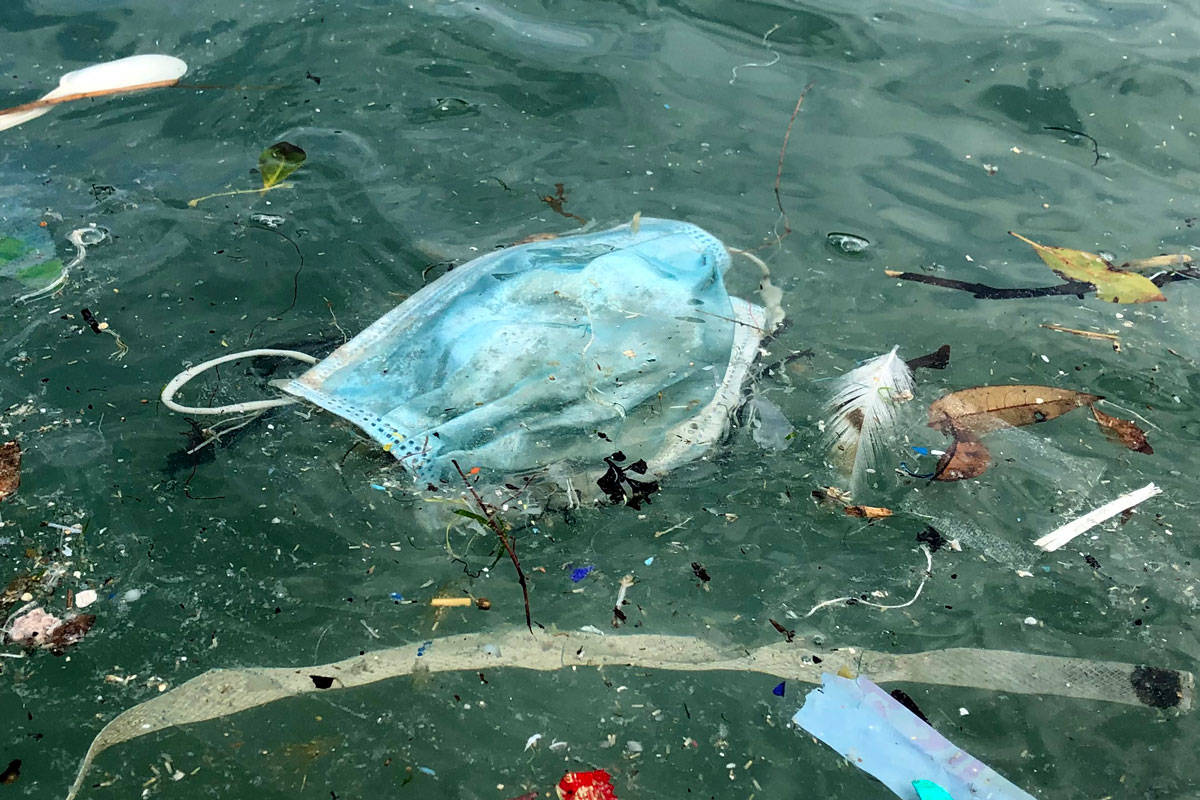The coronavirus pandemic has brought about a wide range of problems beginning from extensive pressure building on medical infrastructures especially in poor and middle income countries, has left a devastating impact on the economy and caused millions of people to lose their jobs and livelihoods, with the closure of schools and educational institutions it has been having major effect on the educational aspirations of millions of students across the world etc but the environmental implication of the coronavirus pandemic has been talked about relatively less but it occupies an extremely crucial place in the debate, nonetheless.
The coronavirus pandemic has introduced the need for the usage of Personal Protection Equipment of PPE kits that are generally made up of plastic that can be used only once, this type of plastic is called single-use plastic. The usage of PPE kits in large number by doctors, nurses and other medical staff have meant that piles and piles of single-use plastic will be used and thrown in the form of PPE kits. How will the earth react to it, how will we dispose these single-use plastics effectively and what will be its long term impact?
Turning Used PPE Kits to Fuel and Other Useful Resources
It is in this context that the alarm raised by Indian scientists with regard to the dangers posed by the extensive usage of single-use plastics in the form of PPE kits becomes important. Several groups of scientists from eminent Indian institutions such as the National Chemical Laboratory(NCL), Pune, Indian Institute of Petroleum(IIP), Dehradun, Chemical Mechanical Engineering Research Institute(CMERI), Durgapur and IITR, Lucknow have come together to think of possible mechanisms through which the huge burden of used and thrown PPE kits can be recycled.
This becomes a very pressing concern because if we don’t think of ways to recycle the tremendous load of single-use plastic that has been piling up in different corners of the city due to lack of disposal plans, they will end up polluting the environment and contaminating our water bodies, often without options for recourse. Such action and planning is as important as a discussion on ways to revive the economy post pandemic or how to cover up for lost time when schools and other educational institutions open up.
It is in this context that the sustained work and efforts of eminent scientists and researchers from the above institutions become relevant, they are coming together and working on the issue of disposing used PPE kits in such as a way that they can be recycled along with other single-use plastics, so that they can be converted into useful items like fuel pellets and construction and spare materials. One of the most initial and important steps in this entire procedure is to be able to duly sanitise and clean up the medical plastic waste such as PPE kits after usage. Then comes the lengthy party, where it is segregated and finally converted into usable items/resources.

The Pandemic Will End, But What About its Long-Term Ecological Footprint?
The process will convert the used PPE kits and other plastic wastes into fuel pellets and then send them across to testing agencies to delve deeper into the chemical properties of the manufactured pellets. Based on what is found, they are going to decide on better ways of being able to use the plastics in the future such that they meet the demands of the industrial sector and don’t end up in landfills or water resources, contaminating and polluting them beyond repair.
These and all such efforts must be encouraged more and more by the government because the pandemic is sure to end but it is likely to leave behind its imprints on the environment and that is something that the world community has to seriously engage with.
If we fail to encourage and execute action on how single-use plastic in the form of PPE kits and other medical gear that are being extensively used amid the pandemic, we will end up inviting ourselves to a greater ecological crisis and we may soon have no ways of returning back. Another important point that we must keep in mind is that we have to hurry up in sanitising and converting single use plastics that have been discarded during the pandemic because of their potential to spread the coronavirus further and infect more and more people who come into contact with it.
For us to arrive at ways of looking after the ecology while we work towards eradicating the coronavirus infection, we have to be willing and extremely aware of the need to address the problem of single-use plastics. United Nations has also warned us that only 9% of the single-use plastics that has ever been produced in the world has been recycled. 12% has undergone the processes of incineration and a majority which is around 79% has ended up polluting land, air and water beyond measurable standards.
This data only highlights the fact that the problem of disposing of and recycling single-use plastic is not a new one and that environmentalists and ardent spokespeople of the ecology have time and again reminded us of the need to rethink, reimagine and rework our reaction to plastic. The pandemic has only added up to the gigantic piles of single-use plastics in the forms of wrappers, bottles, disposable cutlery, polythene bags, industrial and automobile waste among a host of other forms in our waterbodies and landfills.
Let us all work towards fighting the coronavirus pandemic but let us not forget that we are also responsible towards a post pandemic world, where the ecology and the environment need to be protected and cared for. But are we ready to rethink our usage of single-use plastics and commit to the environmental cause?














